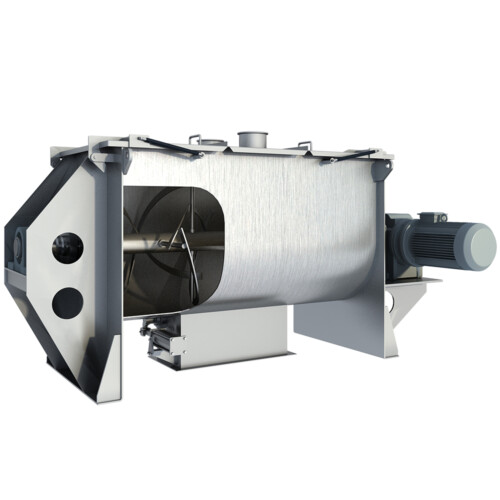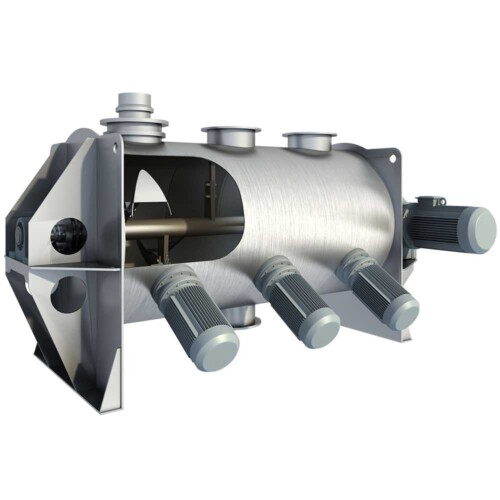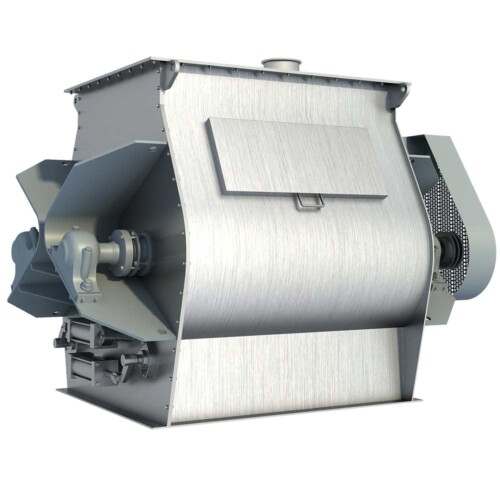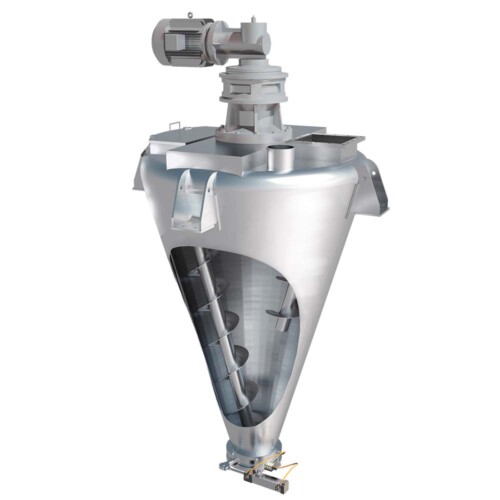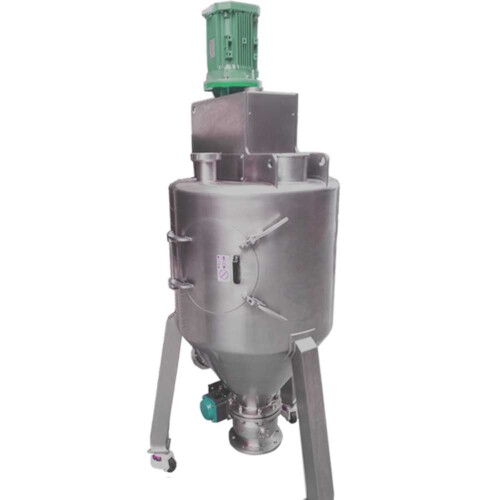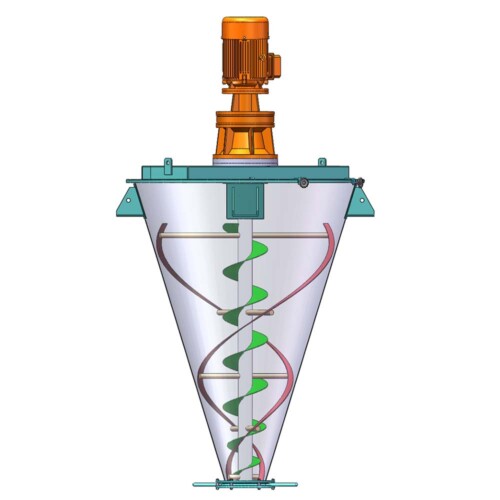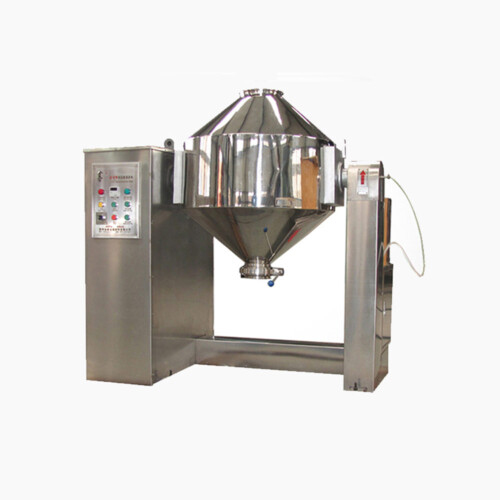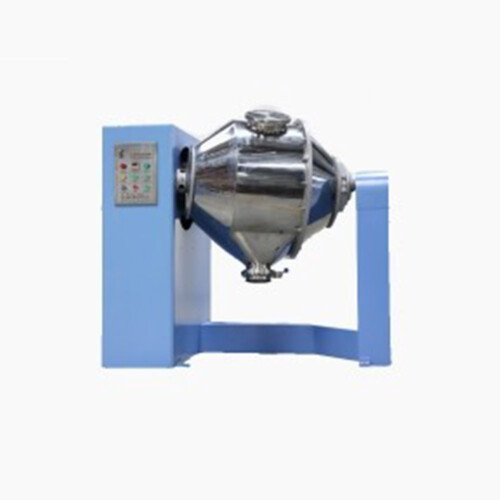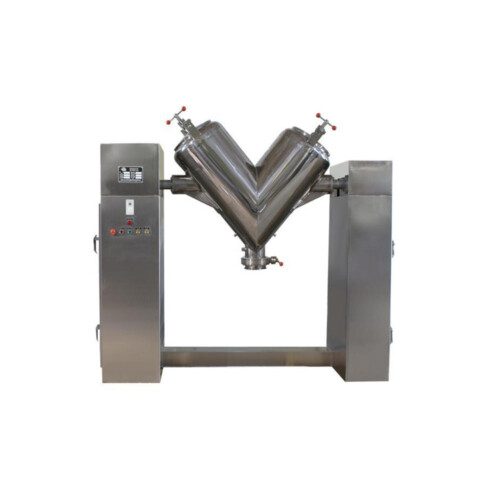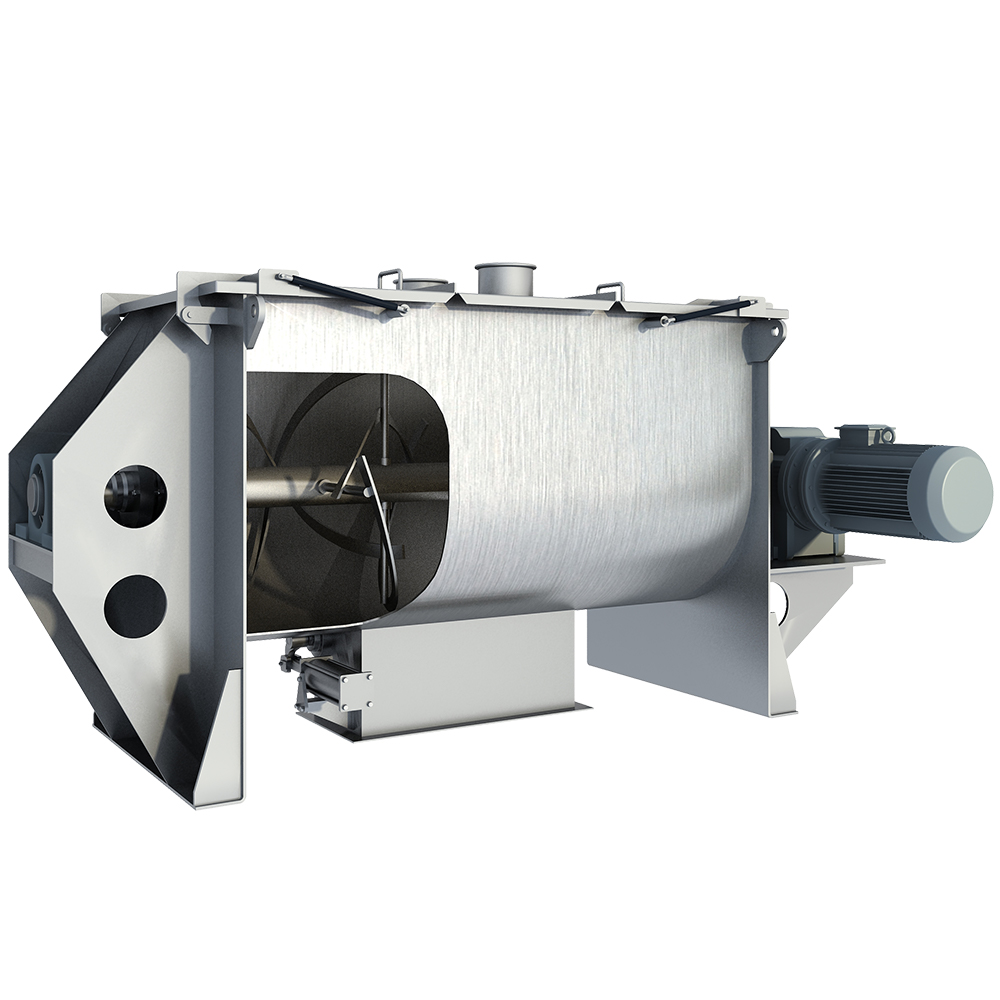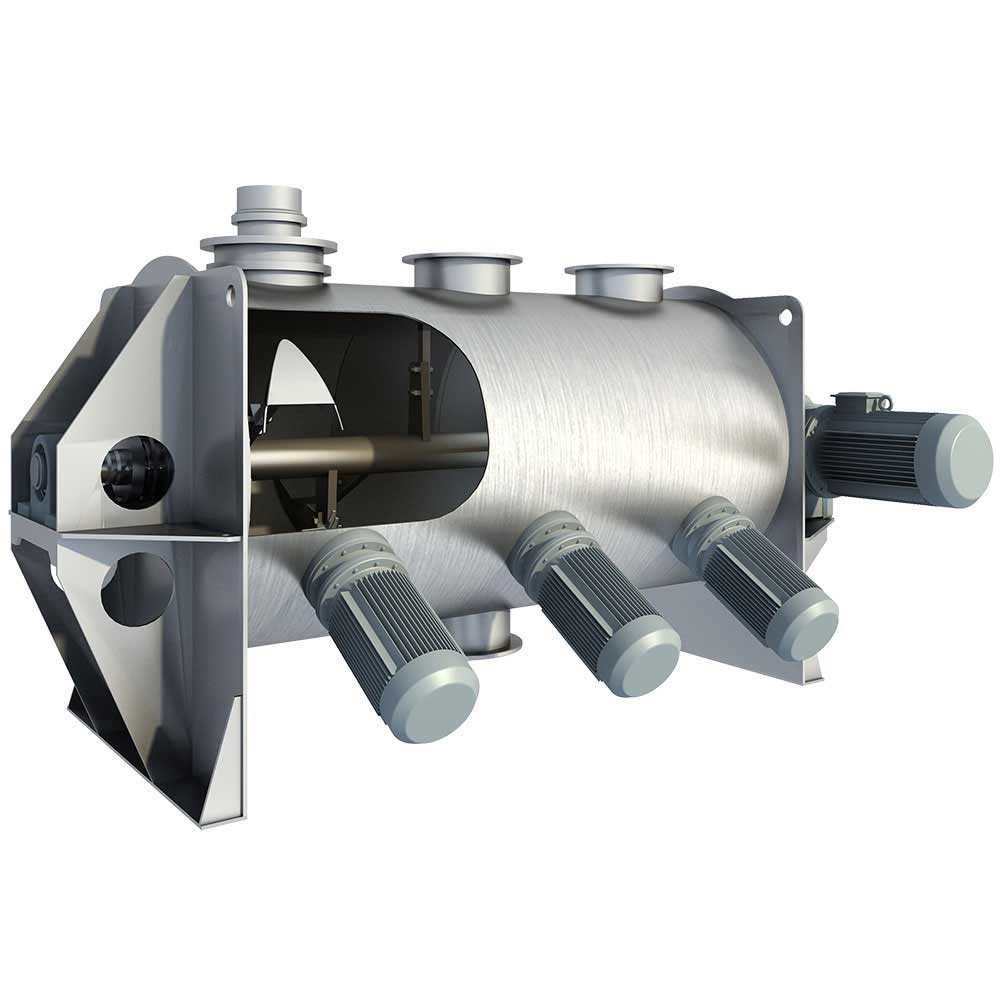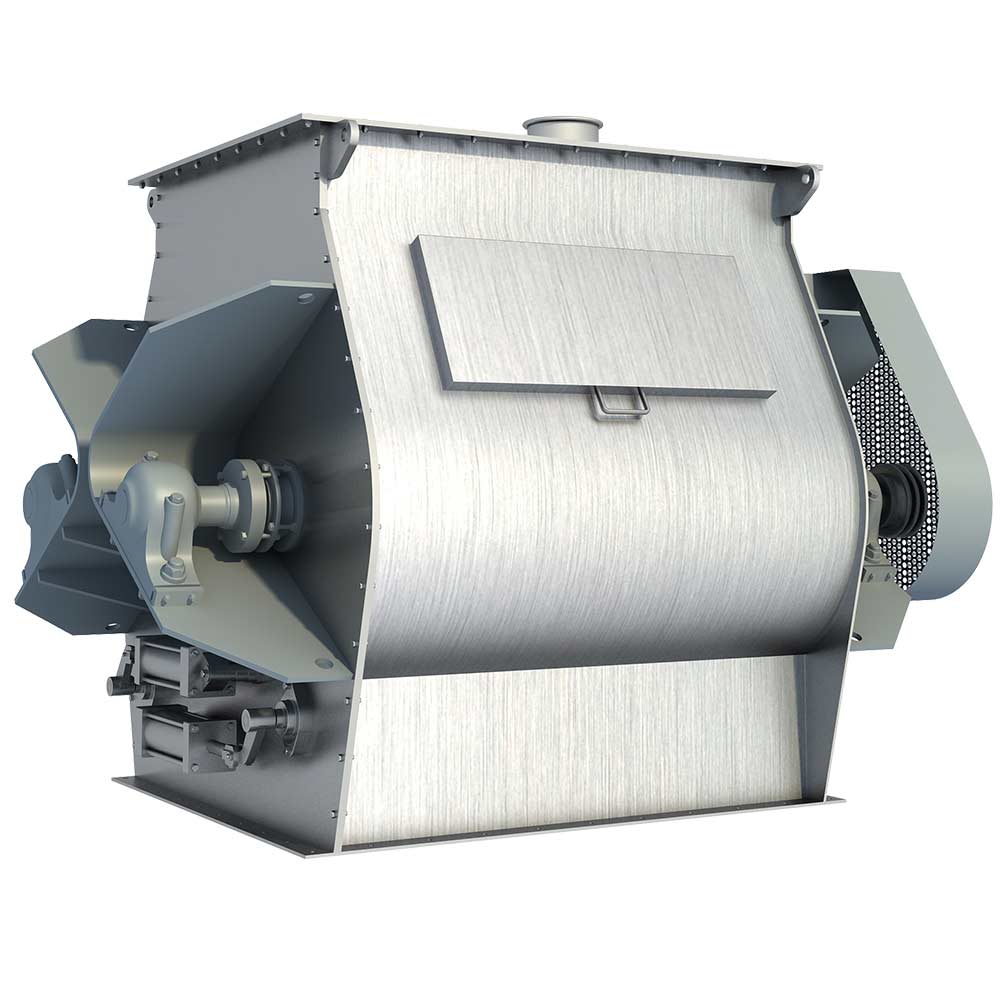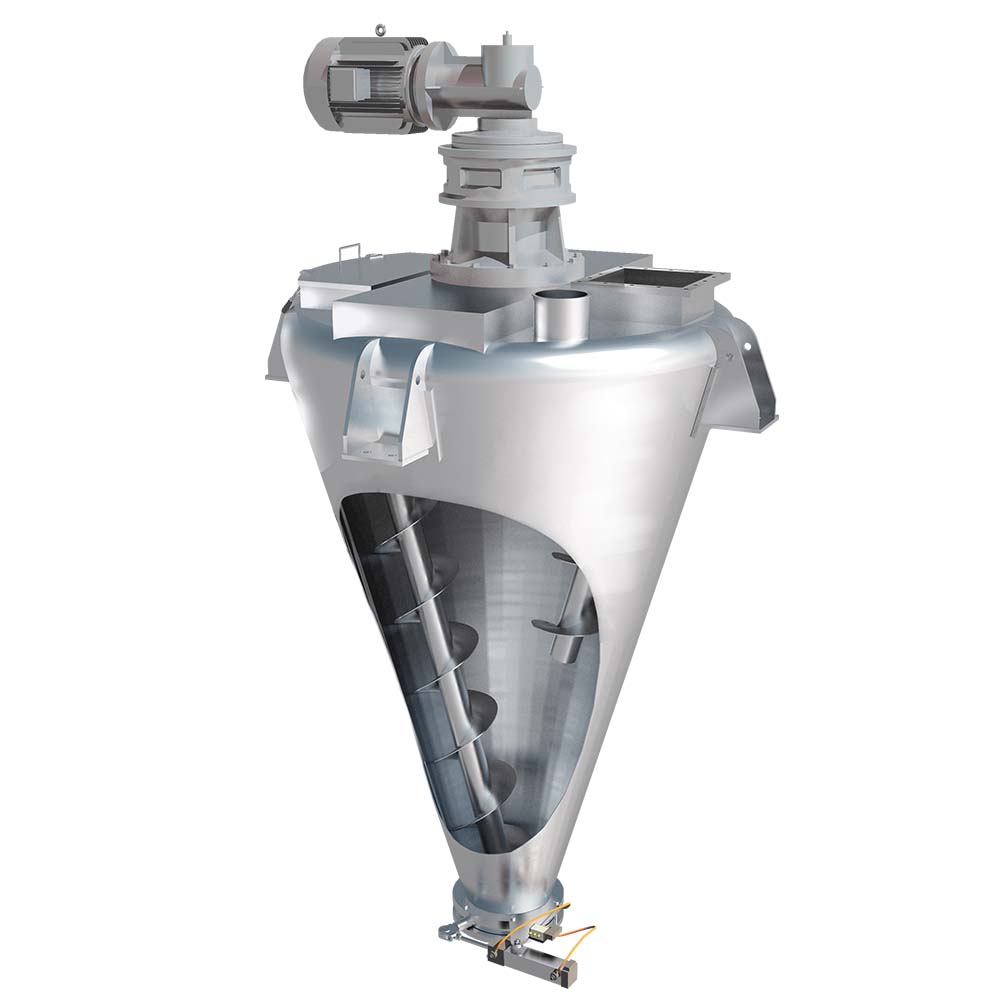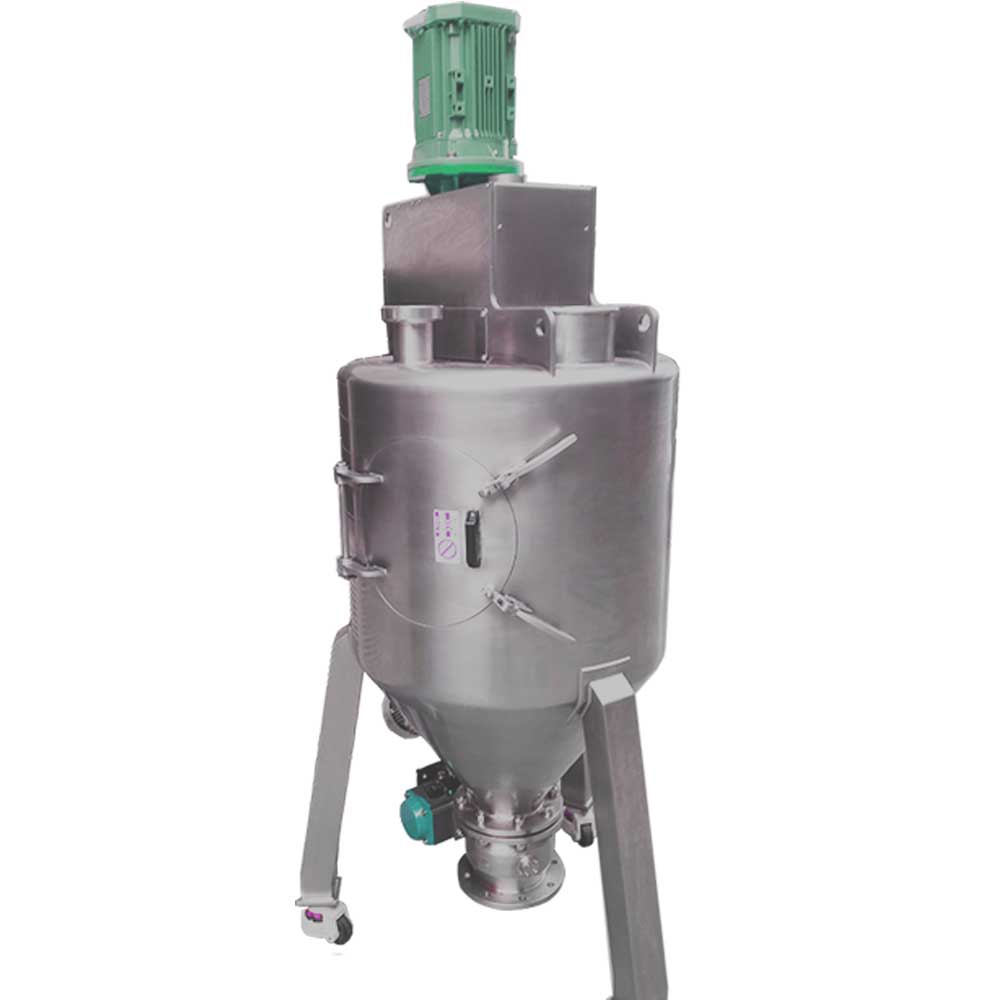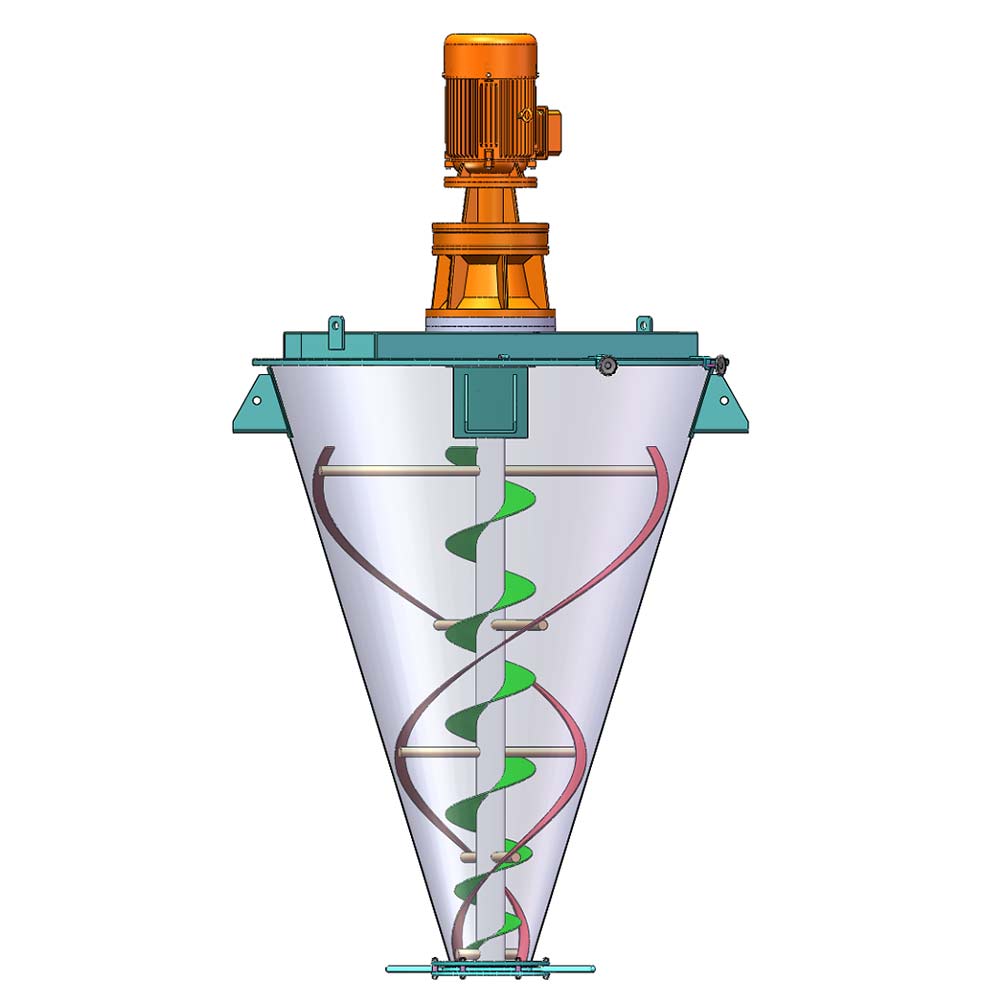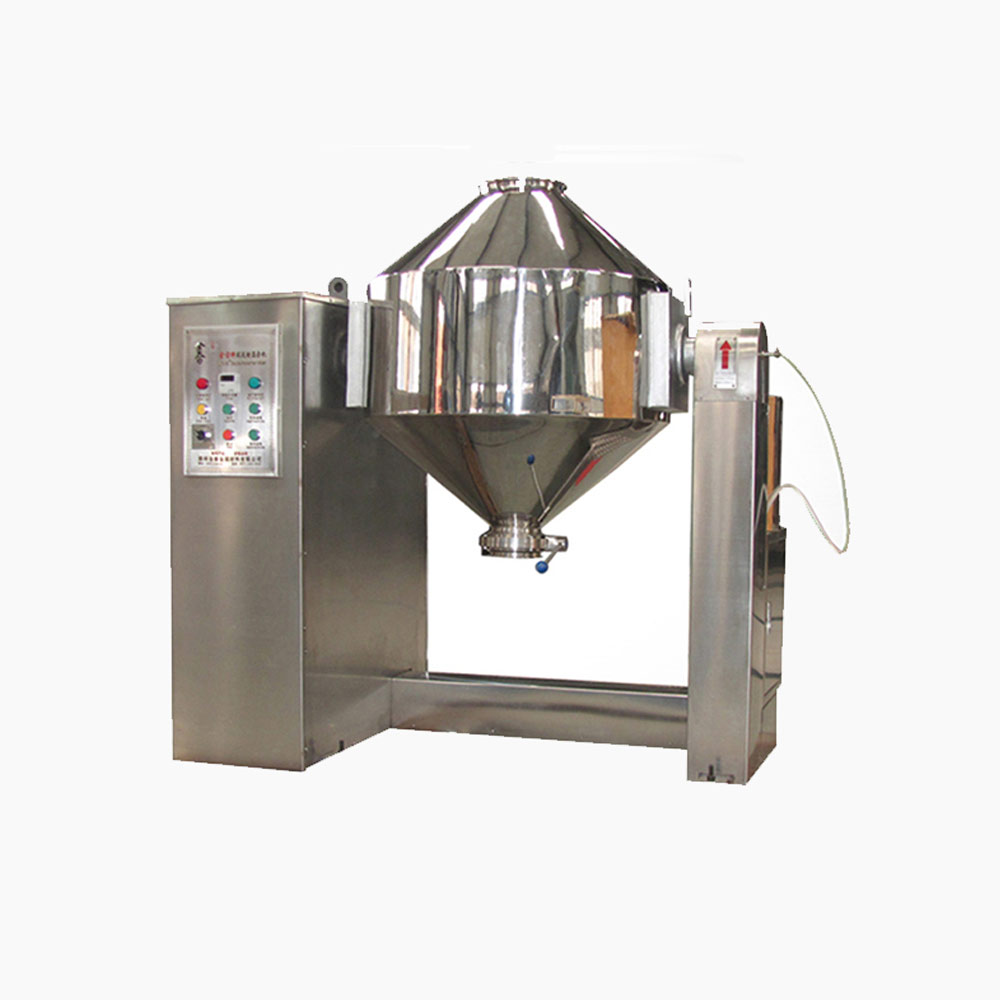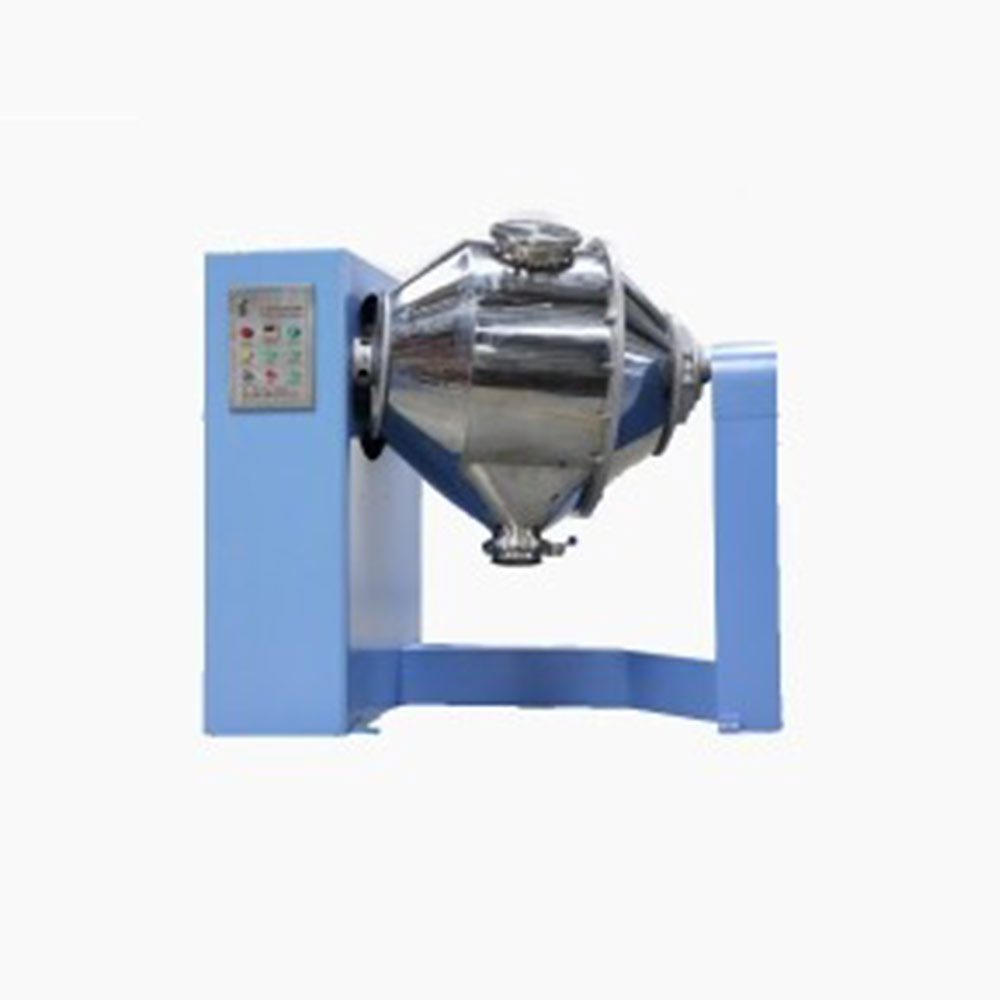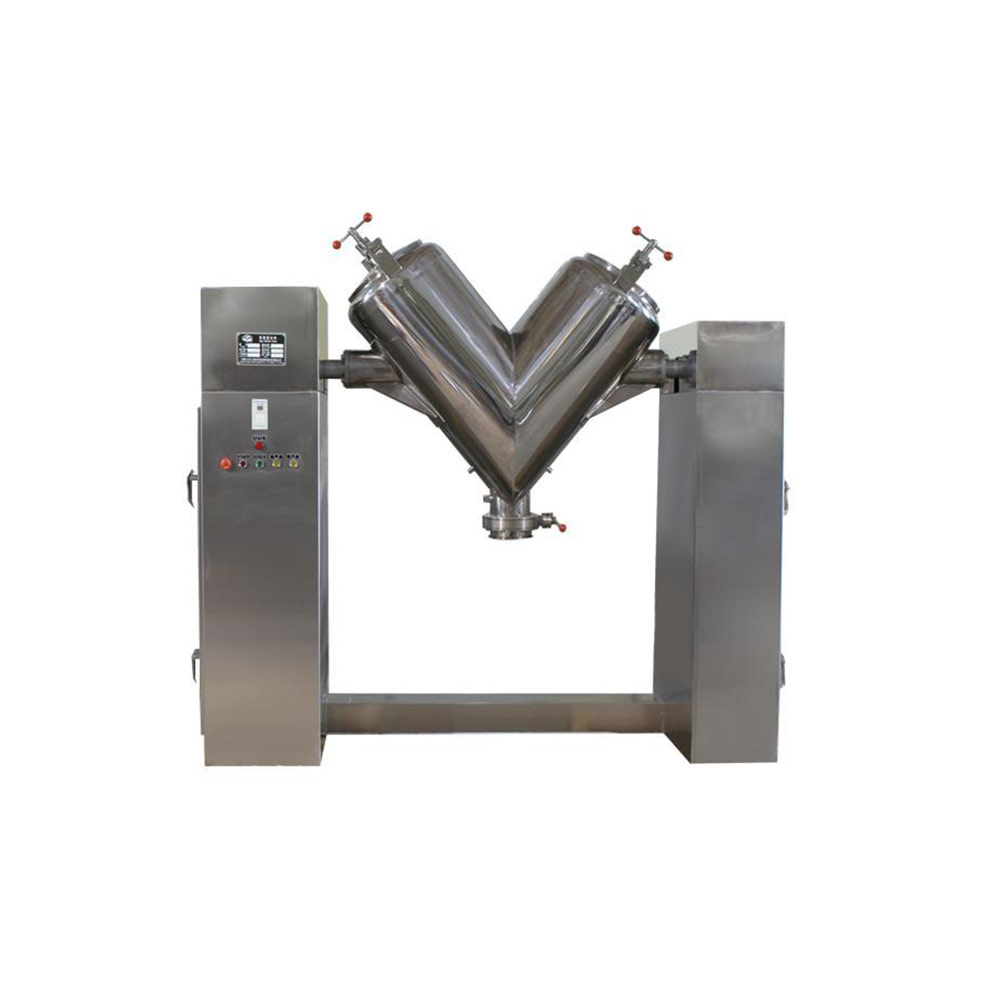Ask An Expert
Frequently Asked Questions
Yes, We can supply simple stand alone panels or automated PLC controlled systems. We normally install and test all controls on our mixers before they are shipped.
Yes, we normally test the mixers before they are shipped and mark out the wire need to connect on the control box.
We manufacture specialty mixing equipment for powder & bulk materials. Included are ribbon blender, plough mixer, conical screw mixer, twin shaft paddle mixer, V blender, double cone blender and other auxiliary equipment such as screw conveyor, quantitive auger filler.
We sell across the world, our cusotmers distribute 5 continents.
Share Us With Your Network
Avoid segregation downstream in a tumble blender (double cone mixer)
Q: My material goes through a wet granulation step in a tumble blender (double cone blender) to avoid segregation downstream. But the granulated material contains agglomerates, formed by liquid droplets in the blender, and I have to treat the agglomerates before I can use the material downstream. How can I avoid the agglomerates?
A: Wet granulation to prevent later segregation is a tricky operation because it’s difficult to disperse the liquid, uniformly through the batch to get good liquid-solid contact. The agglomerates you describe are usually formed when the liquid is introduced within an unfluidized or only partially fluidized portion of the material bed. When improperly fluidized, the material can block the liquid‘s entrance, forcing the formation of droplets and, hence, agglomerates. To prevent agglomerates in your tumble blender (double cone mixer), you can add the liquid through a stationary spray device, which is a hollow pipe located in the mixer’s void space (above the material bed). To ensure that the material passing the high-speed processing bar is well fluidized, you can also reduce the material bed‘s depth. The spray device then adds the liquid to the most aerated portion of the material bed, significantly improving granulation and preventing the formation of liquid droplets and, hence, agglomerates. However, reducing the material bed can slow productivity because you add less material to the mixer.
Ask An Expert

